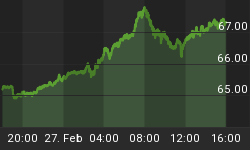Last year, we witnessed a brand new, digital-powered pump-and-dump scheme emerge in the U.S. stock markets whereby retail investors regularly gathered on popular digital discussion boards like Reddit’s Wall Street Bets and connived to use their collective financial firepower on heavily shorted stocks in a bid to create the so-called gamma squeeze.
The plot worked spectacularly well and created a class of the so-called ‘meme stocks,’ with GameStop Inc. (NYSE:GME) and AMC Entertainment (NYSE:AMC) being the most prominent candidates.
Back in January, long-standing subreddit channel r/WallStBets started a wave of buying heavily-shorted GME shares, creating a massive short squeeze and sending the shares unfathomable 1,500% higher in a matter of weeks. The group then focussed its attention on AMC with the same spectacular results before quickly picking out other targets. The buying pressure was so high that popular trading app Robinhood temporarily banned trading in meme stocks such as Koss Corp. (NASDAQ:KOSS), Sundial Growers Inc. (NASDAQ:SNDL), Trivago Inc. (NASDAQ:TRVG) and Naked Brand Group.
Even billion-dollar hedge funds could not resist the meme-stock craze, with hedge fund Senvest Management revealing it returned 85% last year, helped by a long investment in GameStop. Senvest says it initially made $700m on its GameStop investment after the video-game retailer became the meme stock poster boy before the shares went on to gain 680%.
But the meme stock novelty appears to have worn off with retail traders now looking to new horizons to replicate last year's massive gains. Indeed, Dan Raju, the cofounder and chief executive officer of Tradier, has predicted that meme stock rallies will taper off in 2022 with active traders jumping into crypto.
"2022 is going to be the year of regulation. Regulation is good for crypto because it legitimizes the asset class. A lot of active traders have not jumped into crypto, so as regulation comes in, active traders will engage," Raju has told Business Insider.
Selling Pressure
On their own, the two leading meme stocks are facing heavy selling pressure, though bitcoin is hardly to blame at the moment.
GME is down 21.4% in the year-to-date; AMC has lost 24.4% while bitcoin is down 13.0% since the turn of the new year. Even recent news by the Wall Street Journal that GameStop is planning to enter the lucrative market for nonfungible tokens (NFTs) and cryptocurrency has failed to lift the stock.
To be fair, more regulation in the crypto markets can be a double-edged sword.
Last year, bitcoin and other cryptos were basking in the limelight thanks to growing acceptance by Wall Street and some of the world’s biggest and most recognizable institutions and companies including Visa Inc. (NYSE:V), Square Inc. (NYSE:SQ), PayPal Holdings (NASDAQ:PYPL) and Tesla Inc.(NASDAQ:TSLA).
The public listing of the biggest cryptocurrency exchange, Coinbase Inc. (NASDAQ:COIN), in mid-April helped to lend further legitimacy to cryptocurrencies as a mainstream financial instrument.
However, the crypto markets were quickly thrown into a tizzy by mid-year after Beijing started cracking down on the space, curbing bitcoin mining due to concerns of excess speculation and warning financial institutions against offering crypto services.
Things quickly went to the dogs after the Department of Justice seized $2.3 million in bitcoin in early June as part of its investigation into a ransomware attack that shut down the Colonial Pipeline’s gas pipeline, the nation’s largest. The DoJ seizure helped fuel concerns that U.S. officials could ramp up their crypto oversight and threw a monkey wrench into one of bitcoin’s supposed forté--non-traceability.
The DOJ revealed that it seized 63.7 bitcoins, worth approximately $2.3 million, from online hacking ring DarkSide by reviewing bitcoin’s public ledger, locating the transaction and using a private key to access the tokens. It remains unclear what methods the DOJ employed to obtain the private key, but experts have suggested that Fed officials effectively hacked the hackers in an unprecedented show of government intervention in the crypto space.
A couple of senate members on the Intelligence Committee have proposed to increase measures to regulate and trace cryptocurrencies.
“The only way you can begin to get on top of the pervasive ransomware problem is to develop a pattern,” Sen. Roy Blunt (R-Mo.) told NBC News’ Meet the Press, noting that cryptos like bitcoin are the “ransom payment of choice” for hackers.
Experts in the past have warned that heightened regulation could easily stunt the crypto markets, and last year’s events clearly proved that--though, of course, the selloff was only temporary.
On the other hand, as Raju has correctly observed, many prominent investors have shied away from cryptocurrencies as they await more regulatory clarity from US agencies, including popular trading app Robinhood which has avoided calls to add more cryptocurrencies to its platform, again citing regulatory uncertainty. The SEC and other regulatory bodies moving quickly on these matters can help remove a major overhang in the crypto markets.
As Raju has aptly put it, regulation might be the master key that unlocks full legitimacy in the crypto markets.
















